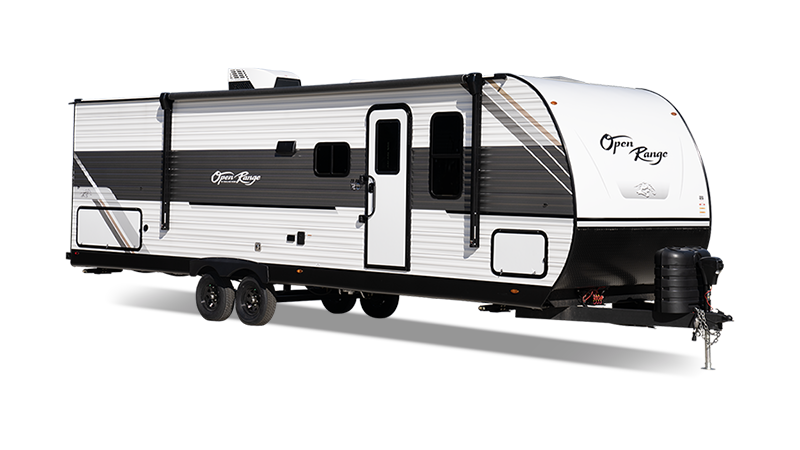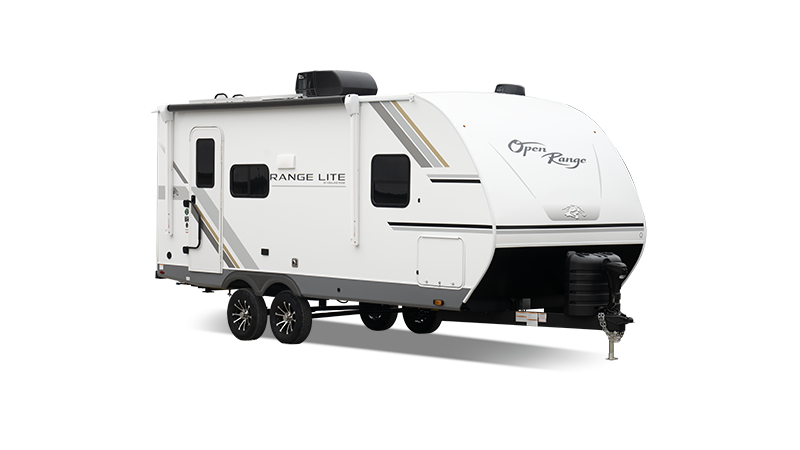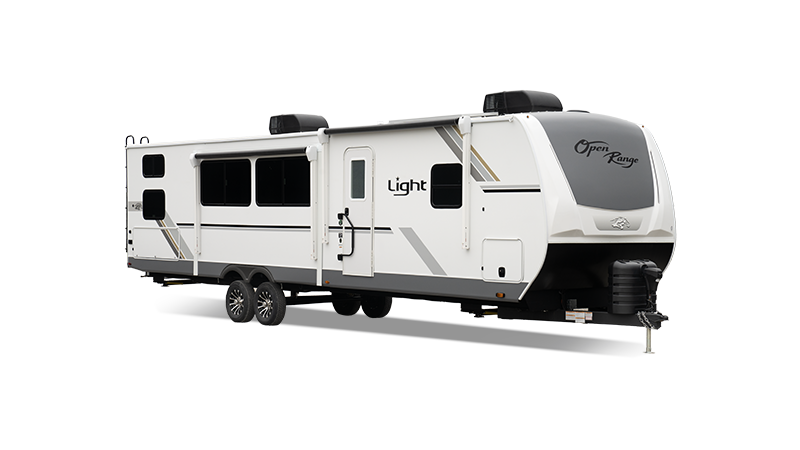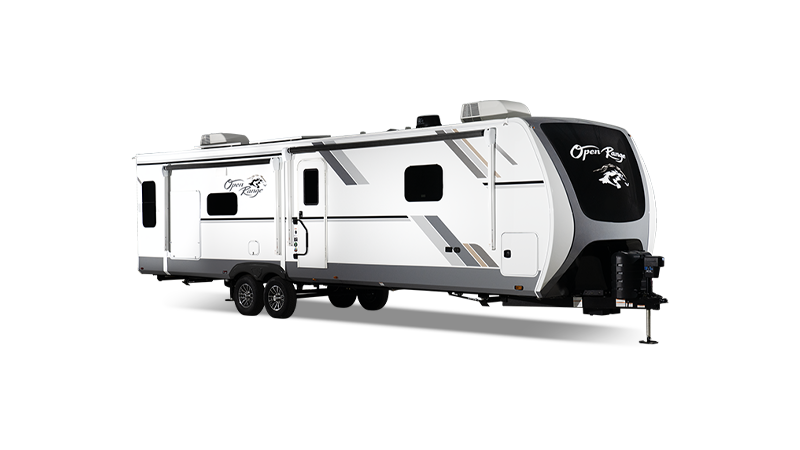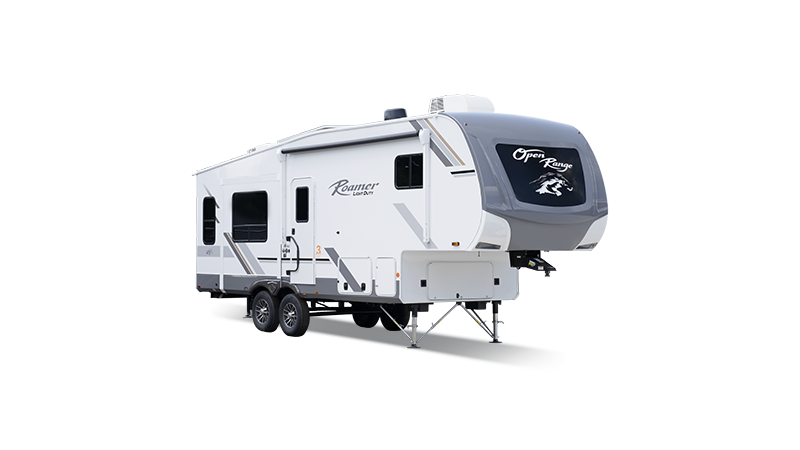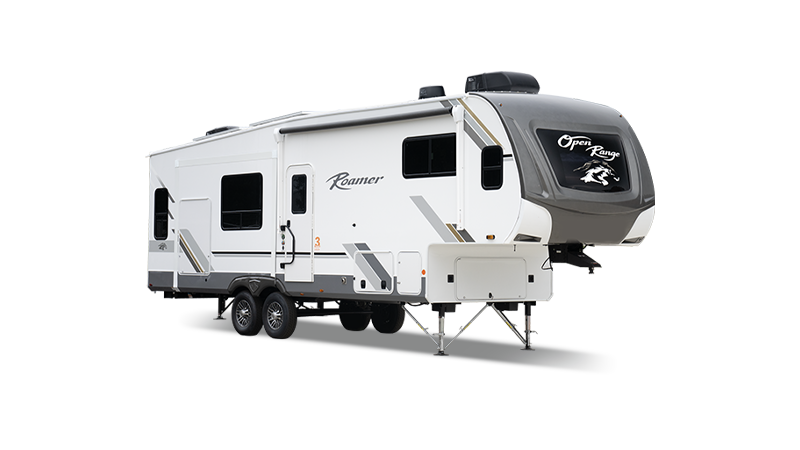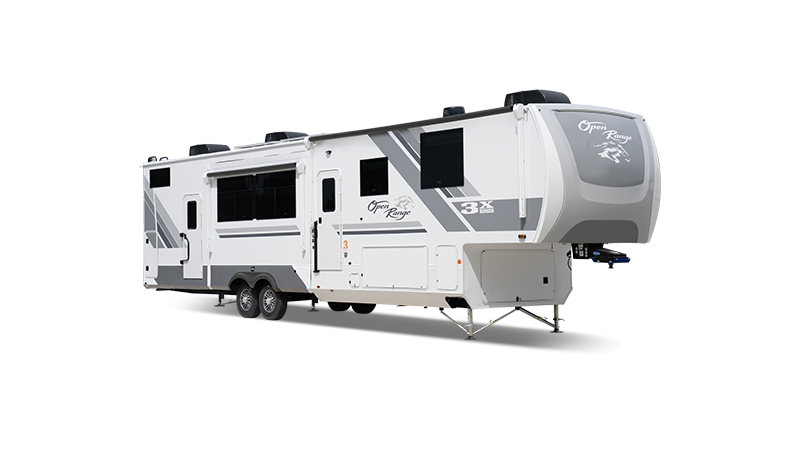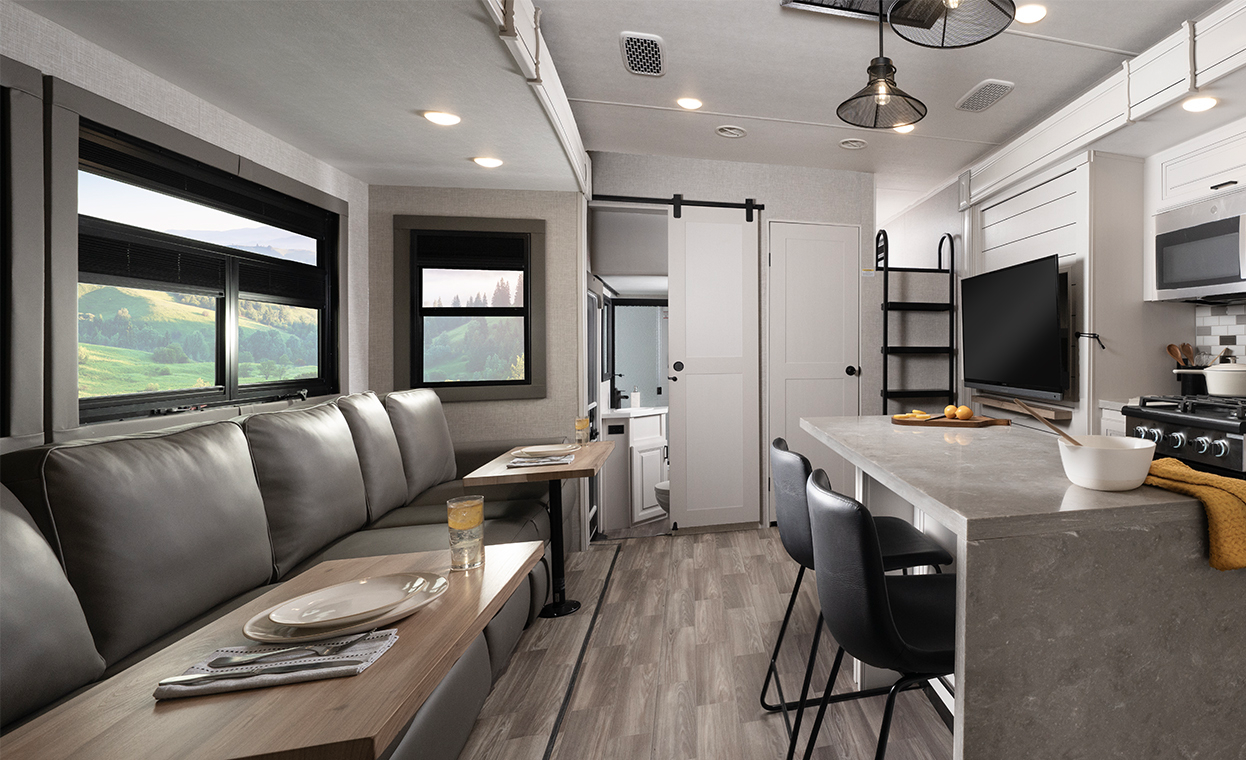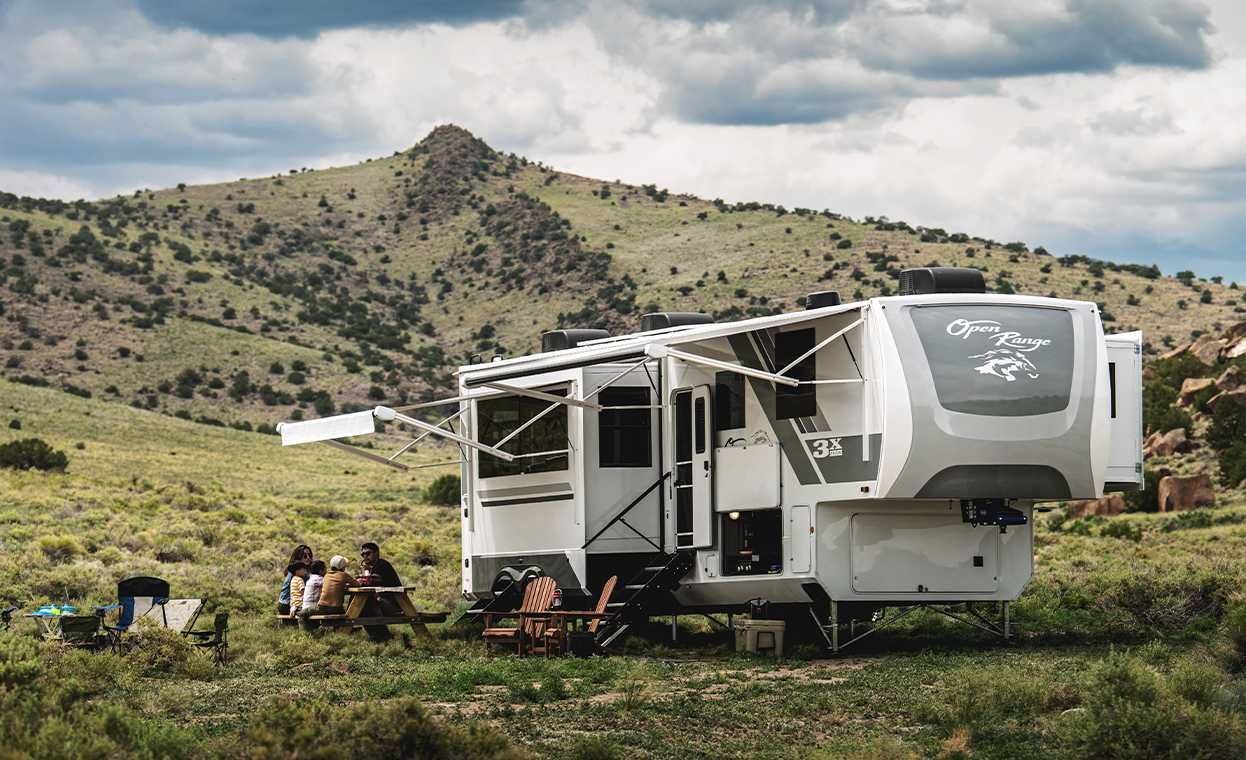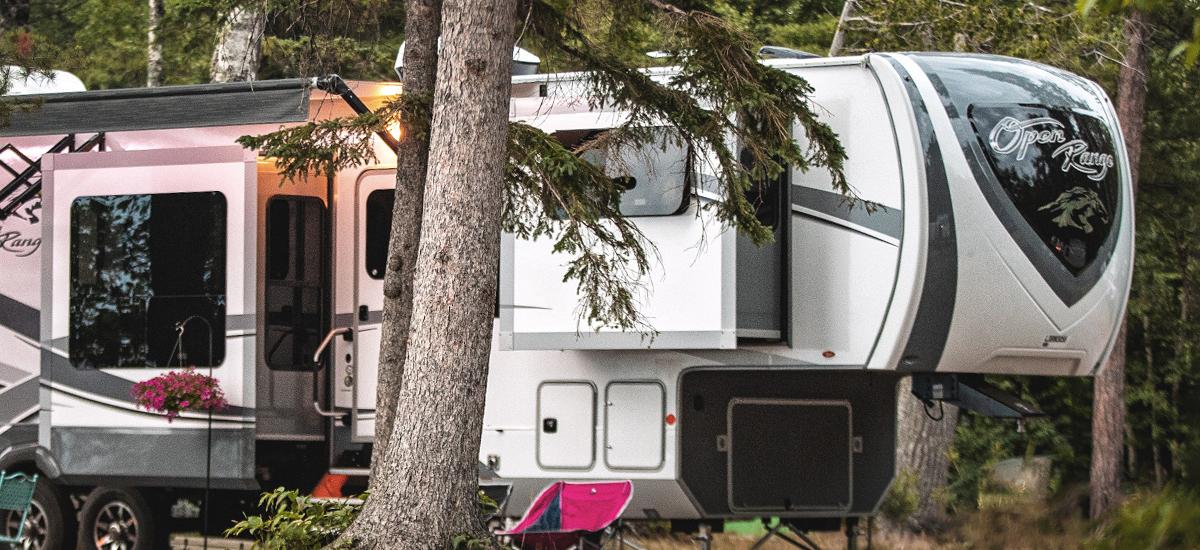Advantages of Fifth Wheel RVs
Fifth wheel trailers are a popular type of RV that offers comfortable, spacious living space for those who enjoy camping or traveling on the road. Fifth wheel RVs have a lot to offer, including spacious, tall, multilevel interior spaces, luxury amenities, slideouts and bountiful basement storage. They come in various sizes and layouts, making them an ideal home away from home for solo travelers, couples, or families.
How Fifth Wheels are Towed
Fifth wheeler campers are designed to be towed by a pickup truck with a specialized hitch installed in the bed of the truck. This connection method offers improved stability and maneuverability compared to traditional travel trailers that are hitched to the back of the towing vehicle.
Fifth Wheel Towing Considerations
Towing a fifth wheel trailer can be a fun, exciting experience, but there are some aspects you need to consider before diving in. Here are some of the most important factors to keep in mind:
Verify Your Tow Vehicle's Capability
The most important thing for safe and comfortable towing is making sure your tow vehicle is capable of handling the trailer. Unlike travel trailers where the tow rating alone is the most important factor to match up, there are other weights you’ll need to understand when towing a fifth wheel.
Weight and Load Distribution
Proper weight and load distribution are essential to safe fifth wheel towing. The weight of the trailer and cargo should be distributed evenly over the axles of your truck to ensure safe, stable towing.
Understanding Weight Ratings
It’s essential to know the weight of the fifth wheel trailer you plan to tow, including cargo and fluids. You’ll need to verify that your truck has a heavy-duty towing package with the towing capacity and necessary hitch installed to tow a fifth wheel trailer. You’re going to want to check the Gross Vehicle Weight Rating (GVWR), Cargo or Payload Capacity, and Gross Combined Weight Rating (GCWR) before committing to your next fifth wheel purchase.
Here are the three metrics to keep in mind for saving fifth wheel towing:
- GVWR (Gross Vehicle Weight Rating)
- Cargo or Payload Capacity
- GCWR (Gross Combined Weight Rating)
GVWR (gross vehicle weight rating)
This is the maximum loaded weight of your vehicle as determined by the manufacturer. It’s important to know this for both the tow vehicle and trailer since 20-25 percent of the weight of the loaded trailer will be transferred down onto the truck when hitched. Look at the door sticker of your tow vehicle for the vehicle’s official GVWR.
Cargo or payload capacity
This is the GVWR of the tow vehicle minus the weight of the truck empty. The weight that the trailer adds must be within this range.
GCWR (Gross Combined Weight Rating)
The maximum total weight of a loaded tow vehicle and trailer is determined by the tow vehicle manufacturer.
These are just the basics, and ultimately, you’re responsible for the math. If you’re buying a new tow vehicle, be sure to do your own research about the measures and capabilities of the vehicle. If you have any questions, be sure to connect with your local dealer.
Choosing the Right Hitch and Pin Box Combination for your Fifth Wheel
The right hitch and pin box combination can allow for both full 90-degree motion and space for the trailer to sit at least six inches above the top of the bed or any toolboxes. Smaller, six-foot beds may require a slider hitch, which slides towards the rear as you turn for more space between the tow vehicle’s cab and the trailer. And while not a must, experienced fifth wheel owners say a dual rear wheel tow vehicle provides much more stability.
With the essentials out of the way, here are some tips for getting started with a 5th wheel campers on the road.
TOWING A FIFTH WHEEL: DRIVING TIPS
Driving a fifth wheel is easy once you get the hang of it, but it can be challenging for beginners. Start slow and get some practice maneuvering your rig before you hit the open road. To make sure that your towing experience is a safe and enjoyable one, here are some tips:
Hitching and Unhitching
Figure out a hitching and unhitching routine. You may want to make a checklist until you have your sequence down; it gets easier to remember each time. For example, you’ll want to make sure your tailgate is down when hitching and put back up when towing or you’ll damage the trailer. Avoid distractions during this process.
Tire Maintenance
Watch your tires like a hawk. Not a bad thing to add to your hitching routing, it also doesn’t hurt to check and feel them at all stops. If you’re considering adding tires with a higher tow range, verify first that your rims can accommodate the heavier duty rubber.
Practice Backing Up
Practice, practice, practice. Backing up a fifth wheel trailer can be tricky, especially for beginners. Practice in an empty parking lot or a quiet street to get a feel for how the trailer responds to your vehicle's movements. Practice braking (get a feel for the weight behind you) turning, backing in right, left and straight into spots. Get a feel for when to cut turns, and where to look etc.
Teamwork and Communication
Work as a team. It’s not unusual to see walkie talkies come out when a fifth wheel is being parked at camp. Whoever you travel with, set up a communication system, whether it’s hand signals (either way, it’s best to have eyes on your partner at all times) or talking directly.
Reverse Parking Techiques
When reversing, it can be helpful to watch the tires instead of the back of the trailer. Since there is a joint in the tow rig, it’s a better guide for where the full unit is headed. Don’t forget about the front as you’re backing in either.
The Importance of G.O.A.L
Professional truckers use the term GOAL (Get Out And Look) which helps with fifth wheel parking. If you’re unsure about your surroundings, get out and look around. Thinking about starting the process over? Don’t hesitate if the angles don’t feel right or if something’s too close for comfort.
Slow Everything Down
When towing a fifth wheel trailer, it is important to take it slow and steady. Avoid sudden movements or sharp turns and maintain a safe, comfortable speed on the road. Stay alert and keep an eye on the road, check your mirrors frequently, and be aware of your surroundings.
Listen and Observe
Listen at the beginning of each trip. Leave the radio off. In addition to your “feel”, this is one of the best ways to identify any changes in your rig or performance and prevent damage or danger.
Anticipate and Look (Far) Ahead
Look far ahead. With a stopping distance that’s much longer than you’re used to and the potential of sway caused by jerky movements, you’ll want more time to react. Keep an eye beyond the vehicle right in front of you so you can anticipate any potential issues.
Careful Planning for Safe Travels
Plan your route in advance, taking into consideration the weight and size of your trailer. Avoid steep hills, sharp turns, and narrow roads whenever possible. If possible, reserve a pull-through site to avoid tricky parking or maneuvering altogether. With such a large trailer, it’s crucial to know where you’re going and what to expect.
Once you’re on the road, there are several apps that make it easy to find trailer-friendly gas stations or rest stops, safe height clearance and grades. You’ll also want to check the weather.
Experienced RVers say 20 mph wind is pretty uncomfortable with a fifth wheel and that it can be worth rescheduling your tow day.
By following these tips, you can expect a safe, enjoyable experience when towing a fifth wheel trailer. Remember, always prioritize safety, and don't hesitate to seek advice from experienced RVers or professionals if you have any questions or concerns.
Highland Ridge Fifth Wheel Lineup: Finding Your Dream Fifth Wheel
Looking for a fifth wheel that fits your hopes and dreams? From luxury to lightweight, the Highland Ridge Fifth Wheel lineup has you covered.

